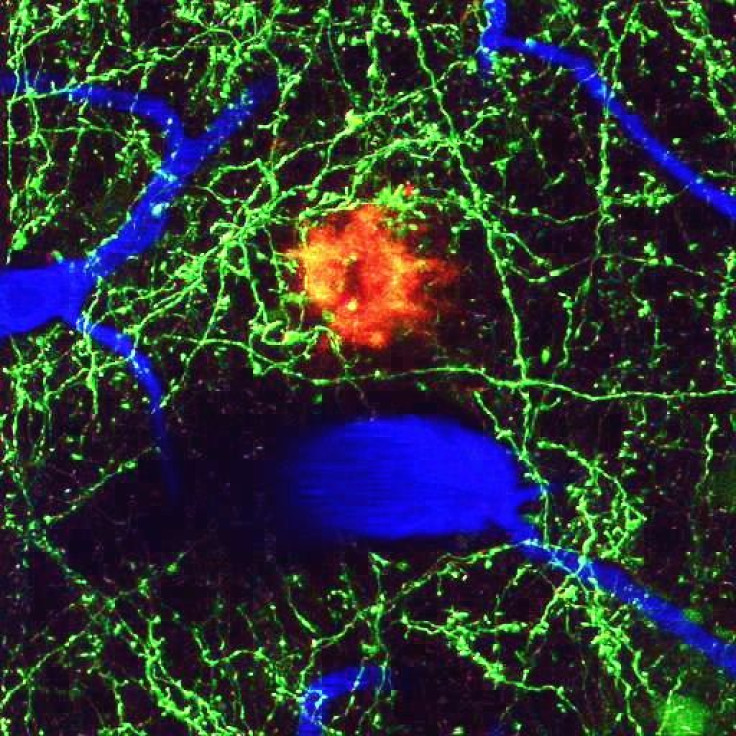Skin Cancer Drug Rapidly Reverses Alzheimer's Symptoms in Mice

A skin cancer drug may rapidly reverse pathological, cognitive and memory deterioration associated with Alzheimer’s disease, according to new research published on Thursday.
Bexarotene, a drug that is currently used to combat T cell lymphoma, appeared to reverse plaque buildup and improve memory in the brains of mice with Alzheimer’s disease by reducing levels of beta-amyloid plaques in the brain that cause mental deficits in Alzheimer’s disease.
Researchers said the findings were particularly promising because the drug worked with “unprecedented speed” by reducing soluble amyloid by 25 percent and its buildup in the brain by 50 percent in three days.
The study also found that in older mice with more established amyloid plaques, just seven days of treatment reduced the number of plaques by half.
Apolipoprotein E - or ApoE is a protein that enhances the breakdown of peptide beta-amyloid clusters that build-up in Alzheimer’s brains, but different people possess different versions of the protein. People with ApoE4 genetic variant are between 10 to 30 times more likely of developing Alzheimer’s by 75 years of age, compared with other not carrying the E4 alleles.
Researchers at Case Western Reserve University in Ohio investigated ways to boost levels of ApoE, the primary genetic risk factor for Alzheimer's disease, to reduce levels of beta-amyloid.
Investigators said that after treatment, the mice made significant improvements in nest building, maze performance and remembering electrical shocks.
"This is an unprecedented finding. Previously, the best existing treatment for Alzheimer's disease in mice required several months to reduce plaque in the brain," Researcher Paige Cramer said in a statement.
Experts said that the results were promising, but noted that in the past successful drugs in mice often failed to work in people.
Previously scientists were also excited when an Alzheimer vaccine seemed to kill nerve destroying amyloid protein deposits in animal brains, but failed to show the same effect in human patients.
U.S. Food and Drug Administration have already approved bexarotene for cancer treatment, and scientists said because the skin cancer drug had been approved a decade ago, this would speed up the prospects for human clinical trials of the drug as an Alzheimer’s treatment.
"While it is still too early to make predictions, if these findings can be replicated in additional preclinical studies, and then later in human clinical trials, we may have a powerful new weapon in the battle to halt this disease," noted American Health Assistance Foundation Vice President for Scientific Affairs Guy Eakin.
Targretin, the skin cancer drug chemically as bexarotene, is currently sold by Tokyo-based Eisai Co., and Eisai and New York-based Pfizer Inc. sell Aricept which is the most widely prescribed Alzheimer’s disease drug before cheaper generic copies of the medicine were made available in the U.S. in 2010.
Around 5.1 Americans have Alzheimer’s disease, which is the leading cause of dementia in the elderly. The U.S. Department of Health and Human Services estimates that in 2050, the number of patients affected with the mental disease will double, and scientists have not been able to pinpoint the cause of the condition and there is no cure.
This month has been an especially hopeful month for people and family affected by Alzheimer and dementia diseases. Earlier this week, the Obama administration said that it would increase funding for Alzheimer’s research by $50million to $500 million this year to study the cause of the disease as well as test drugs that may halt its progression. Last week, Alzheimer’s researchers also mapped out how Alzheimer’s disease spreads in the brain and found that abnormal “tau” proteins jump from neuron to neuron.



























